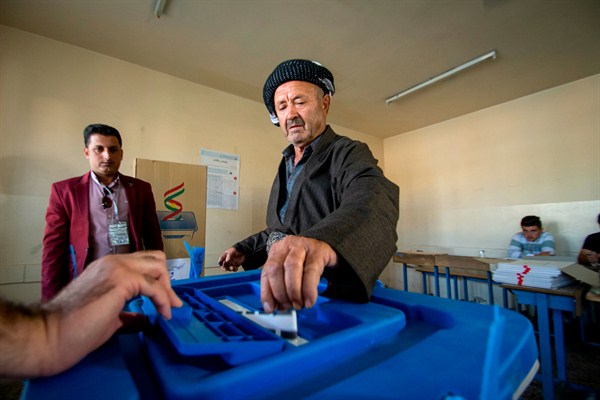Talks are ongoing to form a governing coalition in northern Iraq’s autonomous Kurdistan region, after no party gained an outright majority in parliamentary elections held Sept. 30. The Kurdistan Democratic Party won 45 out of 111 seats in the local Parliament, while its junior coalition partner, the Patriotic Union of Kurdistan, came in second with 21 seats. Yet opposition parties have rejected the results, claiming violations in the electoral process. In an interview with WPR, Renad Mansour, a research fellow in the Middle East and North Africa Program at Chatham House and a visiting fellow at the Institute of Regional and International Studies at the American University of Iraq-Sulaimani, discusses the implications of the elections and the prospects for forming a coalition.
World Politics Review: What explains the Kurdistan Democratic Party’s strong showing in preliminary election results, and to what extent did last year’s failed independence referendum play a role?
Renad Mansour: For the past few election cycles, the Kurdistan Democratic Party, or KDP, has been the most popular political party in Iraqi Kurdistan, particularly in Duhok and Irbil, the capital. Several factors explain its popularity. Its main traditional rival—the Patriotic Union of Kurdistan, or PUK—has splintered into a number of opposition parties and movements, splitting their once-unified vote. By contrast, the KDP has maintained relatively stronger cohesion during recent election cycles, and has successfully mobilized its political networks based primarily on social, political and economic patronage. In addition, the KDP has been the most effective at employing Kurdish nationalism. In this regard, it relies on its links to its founding father, Mullah Mustafa Barzani, who during his life led the Kurdish nationalist movement.

